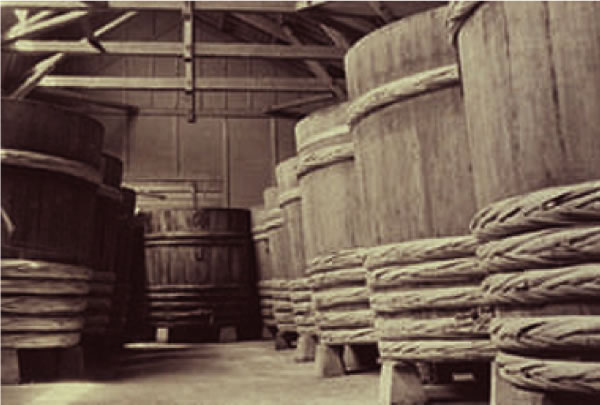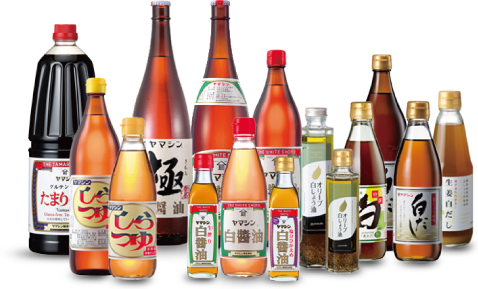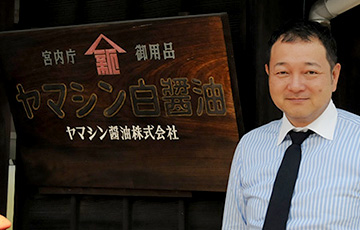
White Soy Sauce
White soy sauce, which originated in Aichi Prefecture, is a revolutionary seasoning that allows you to enjoy delicious food while maintaining fresh colors - as it does not color foods like regular, dark soy sauces do.
Yamashin brewery has been making white soy sauce for 200 years, since the Edo period. They combine traditional production techniques with modern technology to ensure excellent quality.
“Shōyu”, or soy sauce, is a very important ingredient in the Japanese kitchen used as a base or to add flavor to a great number of well-known dishes. Shōyu is a fermented product made from soy beans and wheat, and comes in various styles based on region and proportion of these two main ingredients. Shōyu was introduced in Japan in the 7th century. The Japanese reading for shōyu, 醤油, literally reads “fermented food oil”.
Unlike ordinary soy sauce, wihch is generally 50% wheat and 50% soysauce, white soy sauce is light in color, thanks to its unique 9:1 ratio of wheat to soybeans. As the color is very light, it will not impact your food: it, for example, won't color your white rice and pasta, or alter bright colored veggies and fish. You can therefore use it in cooking, or serve your dishes with soy sauce, and still keep your beautiful presentation. The flavor of white soy sauce is also milder and sweeter than regular soy sauce.

As it is expensive to make, white soy sauce used to only be served in very high class restaurants, but after the war, when the taste and presentation of food became more important, it has become more popular in kitchens in- and outside of Japan.
The origin of white soy sauce dates back to 1802, and originated in what is now called Aichi prefecture, where the Yamashin brewery was founded. The region is also famous for their mirin, sake, miso and tamari soy sauce industries.

Yamashin Brewery creates a nice line-up with several types of sauces.
Their lineup includes four kinds of white soy sauce:
Classic White Soy Sauce: A perfect replacement of the usual black soy sauce with a good balance of sweetness, saltiness and Umami.
Mild White Soy Sauce: This sauce has a milder flavor and less sweetness too.
Low Sodium White Soy Sauce: The soy sauce is less salty and less sweet but the highest amount of Umami.
Traditional White Soy Sauce: This soy soy sauce has the strongest aroma, with less sweetness and Umami.

Shinichi OKAJIMA, 7th generation
Fermenting food is a delicate process and whereas traditional Japanese companies often still follow original production methods, many mass-production companies choose to opt for a quicker, cheaper, chemical way to produce, and therefore are forced to add otherwise unnecessary additives.
The Yamashin brewery has a history dating back to 1802 and works with 80 large barrels to ferment their products in the traditional way.
Their sauces therefore have a more authentic and intense flavor than the ones made in modern tanks.





